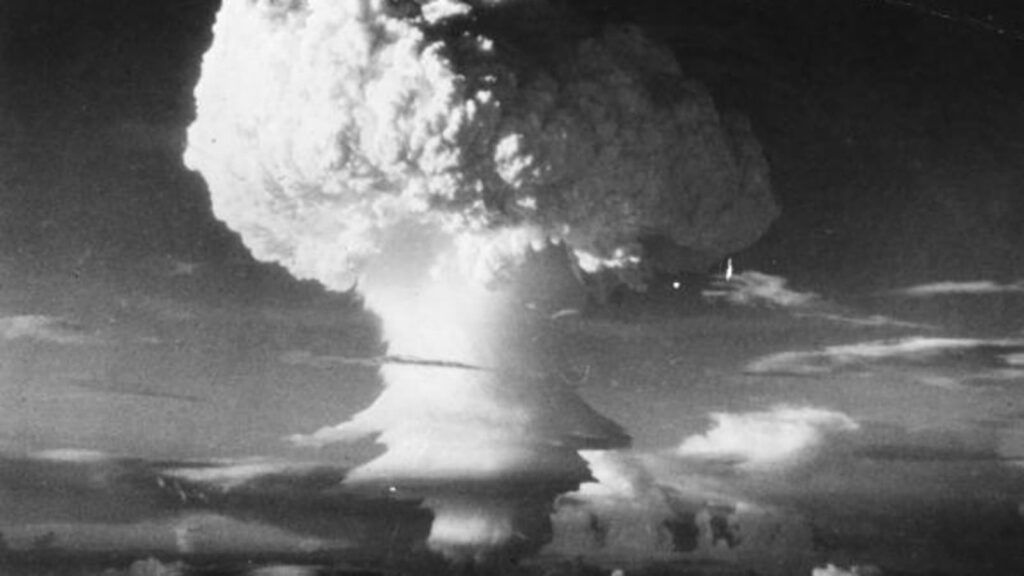On January 31, 1950, amid the chill of the Cold War, U.S. President Harry S. Truman made a declaration that would forever alter the course of global military power and international relations. In a momentous announcement, Truman publicly declared the United States’ intention to support the development of the hydrogen bomb, a weapon far more powerful than any atomic bomb previously detonated. This decision not only marked a significant escalation in the nuclear arms race but also ushered in a new era of nuclear strategy and geopolitical tension.
The Context of Truman’s Announcement:
Truman’s announcement came at a critical juncture in history. The United States, having emerged from World War II as a nuclear power following the bombings of Hiroshima and Nagasaki, was now locked in a Cold War with the Soviet Union. The announcement in 1949 that the Soviets had successfully detonated their own atomic bomb shattered the U.S. monopoly on nuclear weapons and intensified fears of a nuclear confrontation.
The Hydrogen Bomb: A Leap in Destructive Power:
The hydrogen bomb, or H-bomb, represented a significant leap forward in destructive capability. Unlike atomic bombs, which release energy through nuclear fission, the H-bomb utilizes nuclear fusion — the same process that powers the sun — to produce a far more powerful explosion. The prospect of such a weapon was both awe-inspiring and terrifying.
The Decision to Develop the H-Bomb:
Truman’s decision to pursue the hydrogen bomb was influenced by several factors, including military assessments of the Soviet Union’s capabilities and the recommendations of his advisers. Among them was a report from the General Advisory Committee of the Atomic Energy Commission, chaired by Robert Oppenheimer, which presented a deeply divided opinion on the moral and strategic implications of developing the H-bomb. Ultimately, the desire to maintain American military superiority and deter Soviet aggression tipped the scales in favor of development.

The Implications of Truman’s Announcement:
The announcement had immediate and far-reaching implications. It signaled a new phase in the nuclear arms race, prompting the Soviet Union to accelerate its own thermonuclear program. It also sparked a debate within the international community and among the American public about the ethics of nuclear weapons and the risks of nuclear proliferation.
The Legacy of the Hydrogen Bomb Development:
The development of the hydrogen bomb had a lasting impact on international relations, nuclear strategy, and the concept of deterrence. The sheer destructiveness of the H-bomb underscored the futility of nuclear war and led to the adoption of a doctrine of mutually assured destruction (MAD) as a means of preventing direct conflict between nuclear-armed superpowers.
Conclusion:
President Truman’s announcement on January 31, 1950, to support the development of the hydrogen bomb was a pivotal moment that shaped the Cold War and the nuclear age. It reflected the complexities of the post-World War II era, where technological advancements and geopolitical rivalry pushed humanity into an unprecedented territory of power and peril. The legacy of Truman’s decision continues to influence global security and nuclear policy, reminding us of the profound responsibilities that come with wielding the atom’s power.







What do you think?
Show comments / Leave a comment